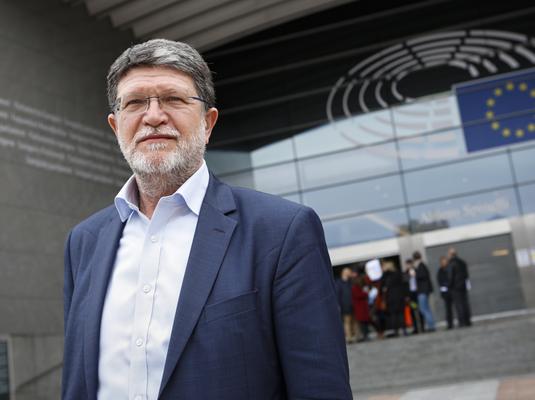With 57 votes in favor, 5 abstentions and 7 votes against, the Foreign Affairs Commeittee (AFET) of the European Parliament adopted today Report on a European Parliament recommendation to the Council, the Commission and the Vice-President of the Commission / High Representative of the Union for Foreign Affairs and Security Policy on the Western Balkans, in the run-up to the 2020 summit, whose Rapporteur is Croatian MEP Tonino Picula.
"The report adopted today by the European Parliament, despite delays caused by the corona virus, is a clear message of support for the Western Balkan countries in their efforts and activities aiming to join the European Union after meeting the criteria. This is a clear sign of our support for the continuation of the enlargement process as a whole, and to which we have given new credibility with this report. Enlargement is one of the European Union's most successful policies throughout its existence and our most powerful foreign policy tool for promoting democracy, prosperity and peace. Enlargement policy is also a prerequisite for strengthening the EU's presence and strategic interests in the Western Balkans, which is also why it is our common interest", said Picula who, in addition to his role as Rapporteur for these recommendations, also serves as the Coordinator of the S&D Group in AFET, as well as the Rapporteur for IPA III Financial Instrument for Pre-Accession Assistance, and Montenegro.
The key Report recommendations to the Council, the Commission and the Commision Vice-President for Foreign Policy and Security are to ensure that the improved negotiation methodology has full EU membership as its result, that the EU provides clear and predictable rules and criteria which will be applied consistently, thereby restoring its credibility. Furthermore, that grouping the negotiating areas emphasizes the depth and quality of reforms in the candidate countries, that it delivers concrete results in the candidate countries while simultaneously allowing for negotiating in multiple areas.
In addition, to make progress benchmarks clear, and to provide continued support throughout the negotiation process. It is necessary to provide clear political incentives for the Western Balkan countries, and to enable them to participate in EU sectoral policies and programs prior to full membership through targeted financial support so that citizens can feel the tangible benefits of membership and increase EU presence in those countries. It is of utmost importance to ensure closer cooperation between the European parliament and the parliaments of the candidate countries. In order to ensure that reforms in the candidate countries are lasting and sustainable, the conditionality mechanism needs to be strengthened so that the negotiation process based on objective criteria can also be suspended in the event of non-compliance.
Democracy and the rule of law must be at the heart of the enlargement process, which means that the chapters on the judiciary, the fight against corruption and organized crime, as well as those on respect for human rights and freedom of the media, with a specific emphasis on ensuring the conditions for an independent and smooth work of journalists, are opened first and closed last. Furthermore, every candidate must ensure free, fair and transparent elections in accordance with international standards, and strengthen the role of civil society as an important player in democratic consolidation.
"The European Union has always shown strength in challenging times...", Picula said, commenting circumstances in which the report was passed, "...by admitting new members, and through reforming our Union, and we should continue to do so in the future. In the end, we managed to solve some of the problems the report takes into account, such as the green light for opening negotiations with Albania and North Macedonia. I am proud that this has been done thanks to the effort, exertion and pressure of the European Parliament. The two countries have certainly deserved the opening of the negotiations."


